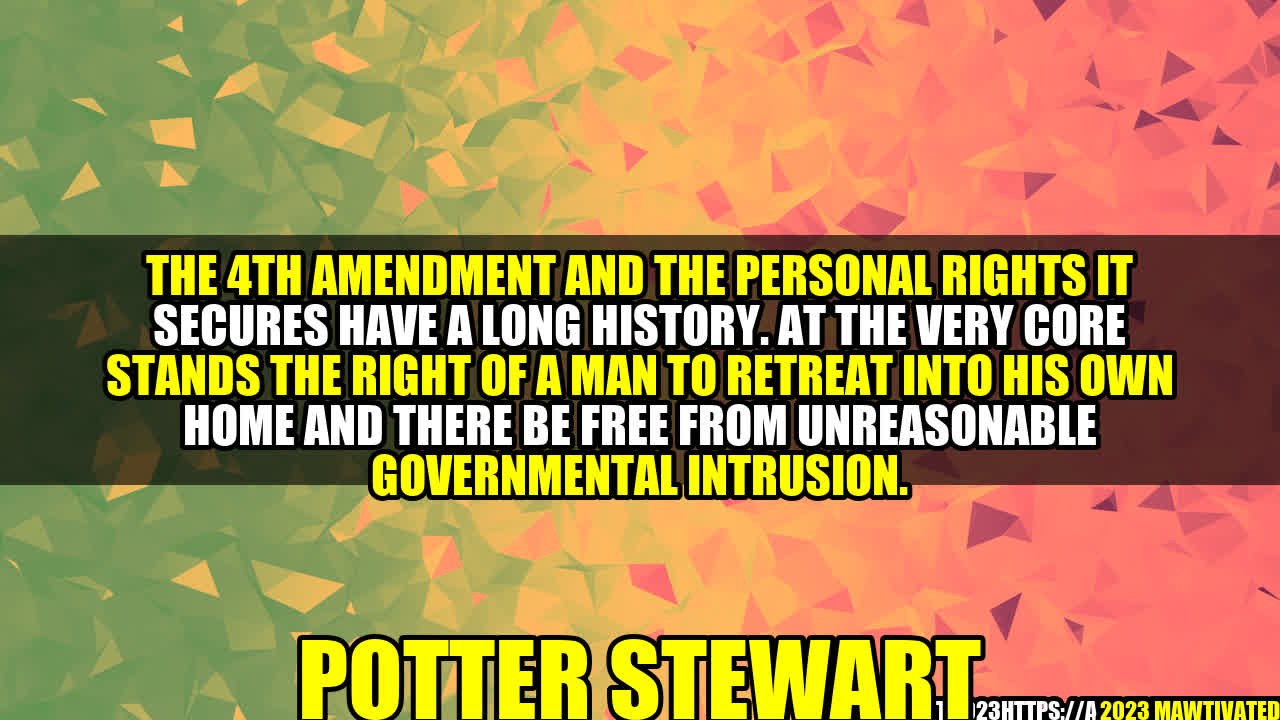The 4th Amendment: The Right to Retreat Into One’s Home

Picture this. You’re sitting in your living room, enjoying your evening after a long day at work. Suddenly, you hear a loud knock on your front door. You approach cautiously, wondering who it could be. When you open the door, you’re confronted by a group of police officers, demanding to be let inside. They say they have a search warrant, but you’re not sure if you believe them. What do you do?
This scenario is not uncommon. In today’s society, our personal privacy is constantly at risk of being violated. However, the 4th Amendment of the United States Constitution protects us from unreasonable searches and seizures. It ensures that we have the right to retreat into our own homes and be free from intrusions by the government.
The 4th Amendment and the personal rights it secures have a long history. At the very core stands the right of a man to retreat into his own home and there be free from unreasonable government intrusion. This right was first recognized by the English common law over 400 years ago, and was later enshrined in our Constitution by the Founding Fathers as a fundamental right of all citizens.
The Story of Author – Potter Stewart
One of the most prominent cases that illustrates the importance of the 4th Amendment is the story of Potter Stewart. Stewart was a Supreme Court Justice who served from 1958 to 1981. In 1967, he authored an opinion in the landmark case of Katz v. United States, which addressed the issue of whether the government could intercept and record telephone conversations without a warrant.
In the opinion, Justice Stewart argued that the 4th Amendment protected not only physical searches but also electronic surveillance. He famously stated:
“The 4th Amendment protects people, not places.”
This statement has since become one of the most influential quotes in 4th Amendment jurisprudence, highlighting the importance of protecting individual privacy rights against government encroachment.
Examples of 4th Amendment Violations
One of the most common examples of 4th Amendment violations is when police officers search a person’s home without a warrant or probable cause. For instance, if they enter your home without permission or a valid reason, even if it’s just to question you, they are violating your rights. Another example is when the government conducts unwarranted electronic surveillance, such as wiretapping or hacking your computer. This is particularly relevant in today’s digital age, where our online activities can reveal a vast amount of personal information.
Conclusion
Protecting our privacy is essential for maintaining a free and democratic society. The 4th Amendment is one of the most important safeguards we have against government overreach, and it’s crucial that we understand and exercise our rights. In summary, here are three key points to keep in mind:
- Always demand a warrant or probable cause before allowing police officers or other government officials to search your home or personal property.
- Be mindful of your online activities and take steps to safeguard your digital privacy.
- Stay informed and involved in the democratic process to ensure that our rights as citizens are protected.
SEO Keywords and Hashtags
Keywords: 4th Amendment, personal privacy, constitutional rights, government intrusion, electronic surveillance, warrant, probable cause
Hashtags: #4thAmendment #PersonalPrivacy #GovernmentIntrusion #DigitalPrivacy #Warrant #ProbableCause
Article Category
Legal

Curated by Team Akash.Mittal.Blog
Share on Twitter
Share on LinkedIn